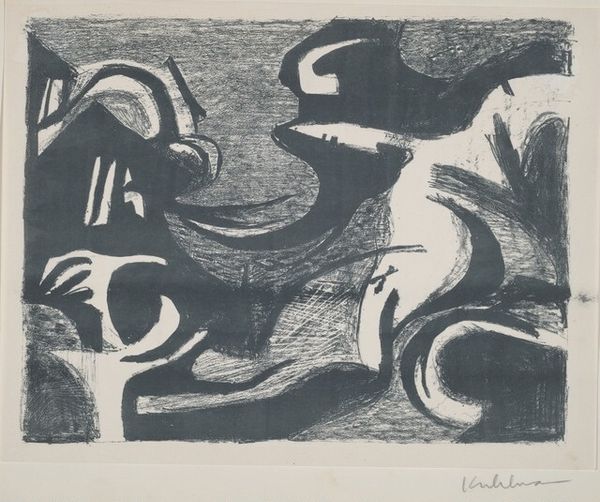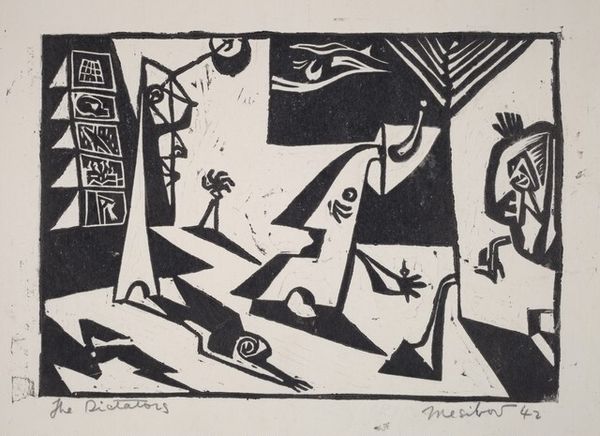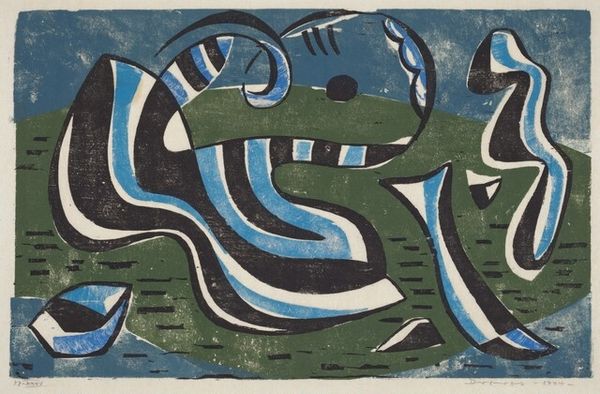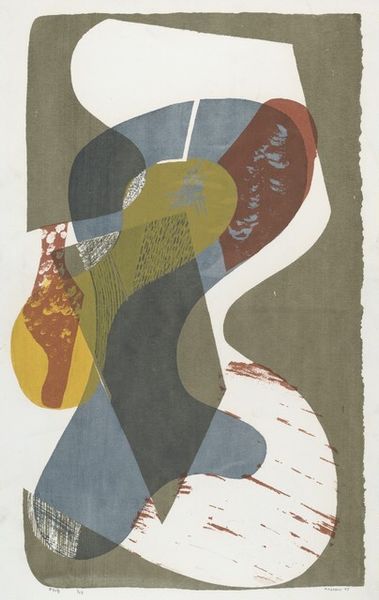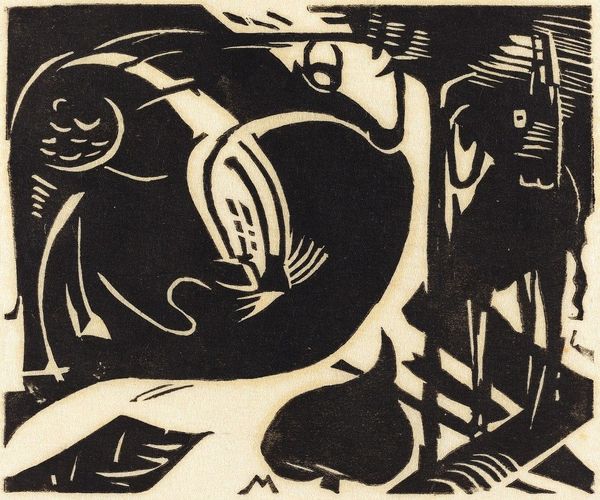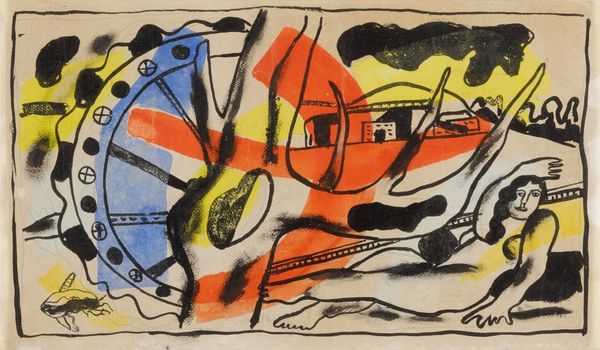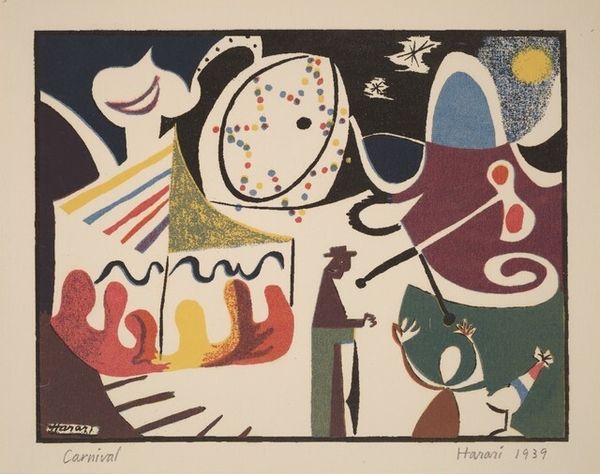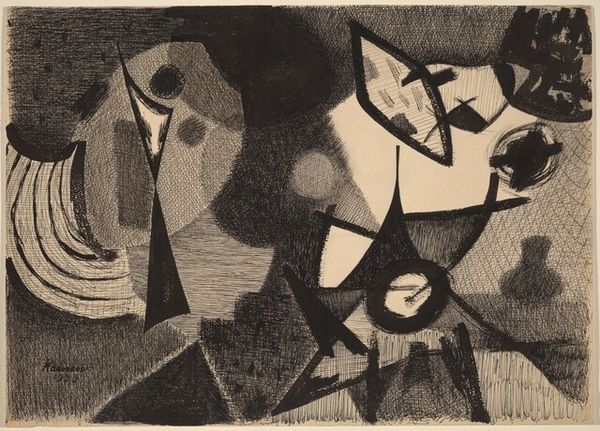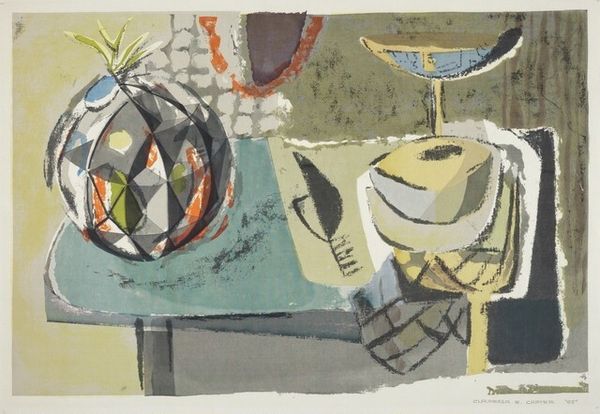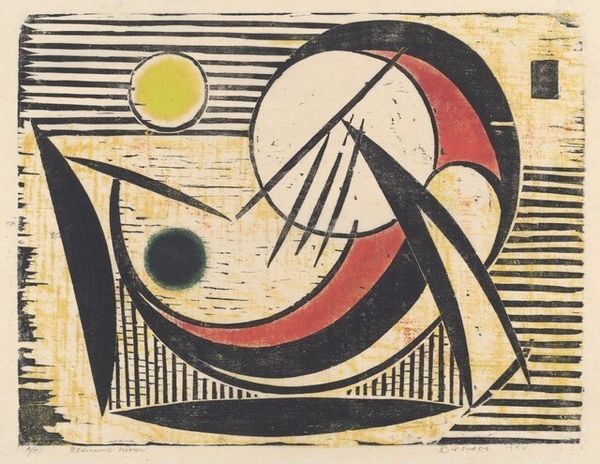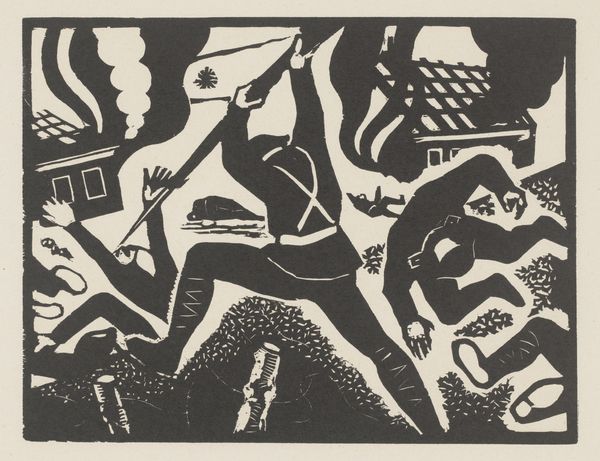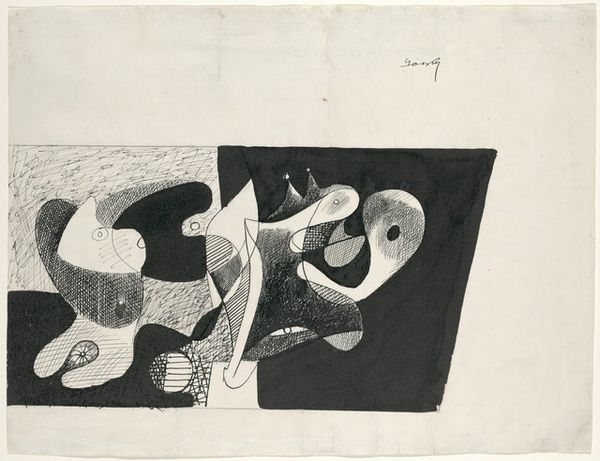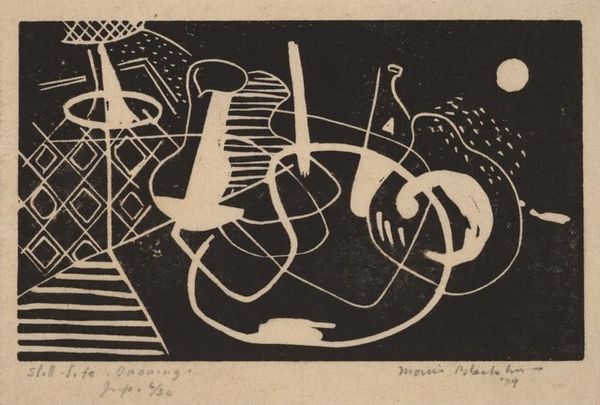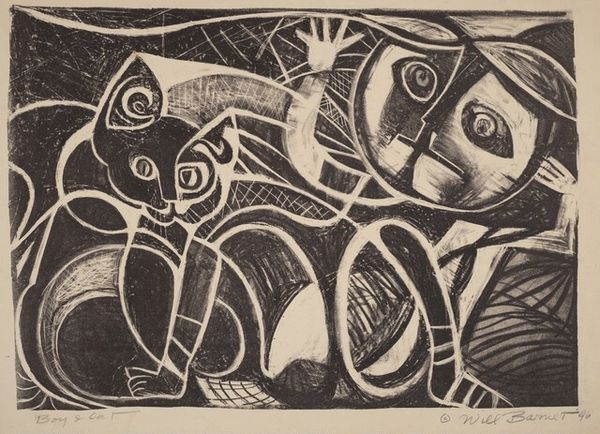
Dimensions: sheet: 38.7 × 56.4 cm (15 1/4 × 22 3/16 in.)
Copyright: National Gallery of Art: CC0 1.0
Curator: At first glance, this image strikes me as both playful and unsettling, with its ambiguous forms and high-contrast colors. Editor: This is Werner Drewes's 1943 woodcut print, titled "Adoration." Drewes was a key figure in the American Abstract Expressionist movement, though he brought with him a distinctly European modernist sensibility honed at the Bauhaus. Curator: Bauhaus! Yes, that explains the geometrical elements, and yet I am drawn to this print not so much for what it depicts, but for its abstract and somewhat haunting symbolic content. Are we looking at stylized figures? Or simply a landscape of the mind? Editor: Given the historical context, I’m inclined to interpret it in relation to the trauma of the war and the immigrant experience. Drewes fled Germany in the late 1930s and later became one of the leading figures of the New York art scene. I wonder, can "Adoration" be viewed as a gesture toward hope amidst crisis? Or perhaps a satirical take on society and class? Curator: Hope through geometric symbols? It's an intriguing concept, and possible! I mean, notice how the shapes resemble both architectural forms and human silhouettes. Could these abstract representations act as allegories? A narrative expressed through symbols that evade literal meaning? Editor: Definitely. German Expressionism, which informs this work, wasn't merely an aesthetic choice, but a deeply felt response to the changing social and political landscape. The sharp lines and the somewhat jarring juxtaposition of colors speak to that tension. It invites viewers to question not only what they see, but how they see, thus potentially encouraging political change. Curator: Yes, indeed. "Adoration" stands as a powerful testimony of abstraction’s role in encoding emotional and psychological responses. It presents itself to the modern psyche in fractured shapes. What will these shapes mean to generations to come? Editor: In the end, what fascinates me most is how Drewes' work underscores the power of artistic expression in reflecting, as well as shaping, our understanding of history.
Comments
No comments
Be the first to comment and join the conversation on the ultimate creative platform.
